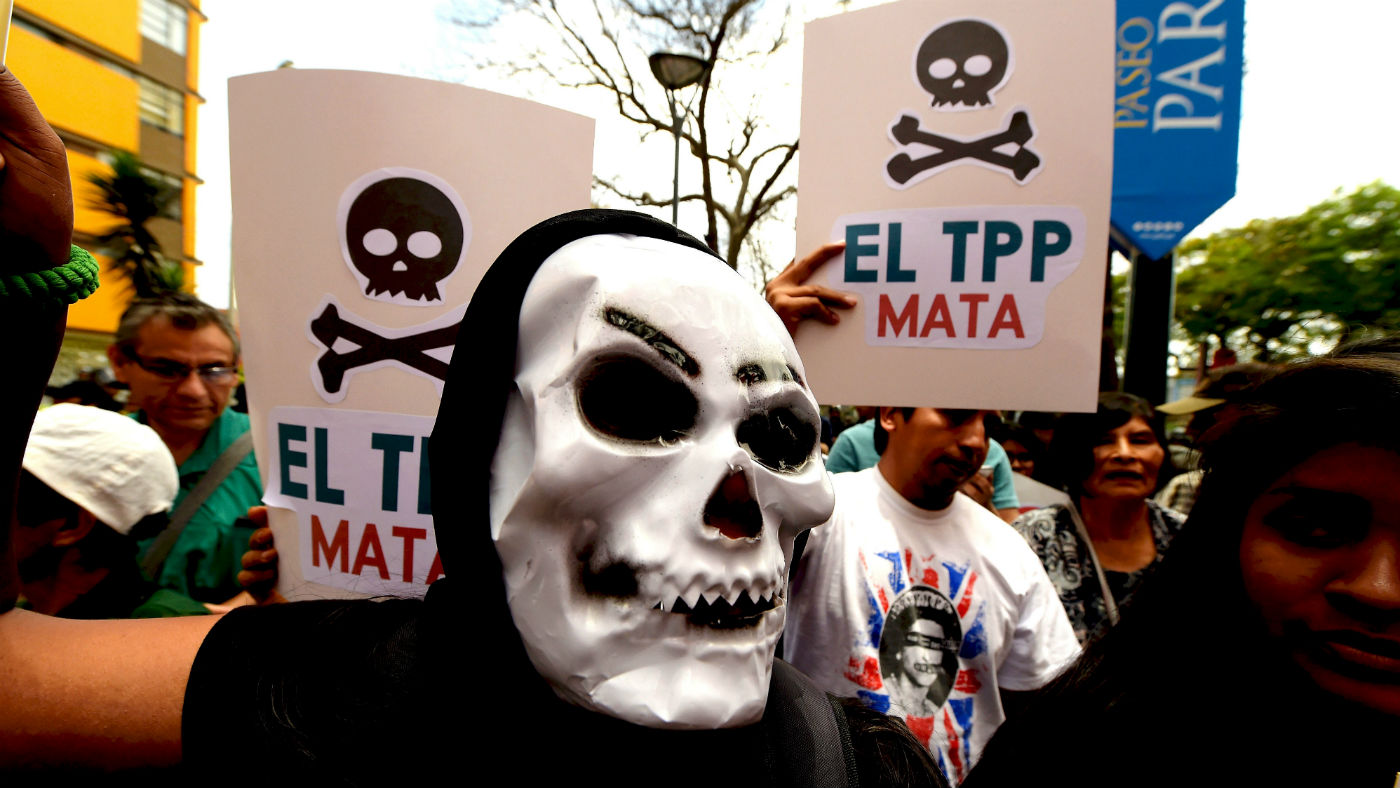TPP brings 500m people into Pacific trade deal
Despite US withdrawal, Pacific rim countries forged ahead with trade agreement

A free daily email with the biggest news stories of the day – and the best features from TheWeek.com
You are now subscribed
Your newsletter sign-up was successful
The 11 remaining members of the Trans-Pacific Partnership (TPP) will sign a new pact later today in Chile’s capital, Santiago.
The TPP had seemed dead in the water after Donald Trump took the US out of the deal early last year. But after overcoming differences, Australia, Brunei, Canada, Chile, Japan, Malaysia, Mexico, Peru, Singapore, Vietnam, and New Zealand finalised the details of the agreement in Tokyo on Tuesday, paving the way for the official signing today.
Japan’s TPP minister, Toshimitsu Motegi, described the deal as “a landmark for the future of our country and the Asia-Pacific region”, the Japan Times reports.
The Week
Escape your echo chamber. Get the facts behind the news, plus analysis from multiple perspectives.

Sign up for The Week's Free Newsletters
From our morning news briefing to a weekly Good News Newsletter, get the best of The Week delivered directly to your inbox.
From our morning news briefing to a weekly Good News Newsletter, get the best of The Week delivered directly to your inbox.
The original TPP would have represented roughly 40% of the world’s economic output. Without the US, the new pact, renamed the Comprehensive and Progressive Agreement for Trans-Pacific Partnership (CPTPP), will cover just 13% of global GDP, but still include around 500 million people.
It could be good news for the UK: earlier this year, says The Guardian, Britain floated membership of the TPP as a way to boost post-Brexit trade.
The deal has proved hugely controversial over the course of its long gestation period. The original pact aimed to deepen economic ties between Pacific rim nations, slashing tariffs and fostering trade to boost growth, and forging a closer relationship on economic policies and regulation.
But, for its US critics, the TPP was “a secretive deal that favoured big business and other countries at the expense of American jobs and national sovereignty”, says the BBC. Those on the left claimed it would cost US jobs and “pave the way for companies to sue governments that change policy on, say, health and education to favour state-provided services”, says the broadcaster.
A free daily email with the biggest news stories of the day – and the best features from TheWeek.com
Despite these reservations, former US president Barack Obama made the deal a priority of his second term, in part to boost US economic growth, but also to serve as a counterweight to China’s growing influence in the Pacific.
-
 Tourangelle-style pork with prunes recipe
Tourangelle-style pork with prunes recipeThe Week Recommends This traditional, rustic dish is a French classic
-
 The Epstein files: glimpses of a deeply disturbing world
The Epstein files: glimpses of a deeply disturbing worldIn the Spotlight Trove of released documents paint a picture of depravity and privilege in which men hold the cards, and women are powerless or peripheral
-
 Jeff Bezos: cutting the legs off The Washington Post
Jeff Bezos: cutting the legs off The Washington PostIn the Spotlight A stalwart of American journalism is a shadow of itself after swingeing cuts by its billionaire owner
-
 Greenland’s capital becomes ground zero for the country’s diplomatic straits
Greenland’s capital becomes ground zero for the country’s diplomatic straitsIN THE SPOTLIGHT A flurry of new consular activity in Nuuk shows how important Greenland has become to Europeans’ anxiety about American imperialism
-
 Epstein files topple law CEO, roil UK government
Epstein files topple law CEO, roil UK governmentSpeed Read Peter Mandelson, Britain’s former ambassador to the US, is caught up in the scandal
-
 Iran and US prepare to meet after skirmishes
Iran and US prepare to meet after skirmishesSpeed Read The incident comes amid heightened tensions in the Middle East
-
 Which way will Trump go on Iran?
Which way will Trump go on Iran?Today’s Big Question Diplomatic talks set to be held in Turkey on Friday, but failure to reach an agreement could have ‘terrible’ global ramifications
-
 EU and India clinch trade pact amid US tariff war
EU and India clinch trade pact amid US tariff warSpeed Read The agreement will slash tariffs on most goods over the next decade
-
 Israel retrieves final hostage’s body from Gaza
Israel retrieves final hostage’s body from GazaSpeed Read The 24-year-old police officer was killed during the initial Hamas attack
-
 China’s Xi targets top general in growing purge
China’s Xi targets top general in growing purgeSpeed Read Zhang Youxia is being investigated over ‘grave violations’ of the law
-
 Ukraine, US and Russia: do rare trilateral talks mean peace is possible?
Ukraine, US and Russia: do rare trilateral talks mean peace is possible?Rush to meet signals potential agreement but scepticism of Russian motives remain